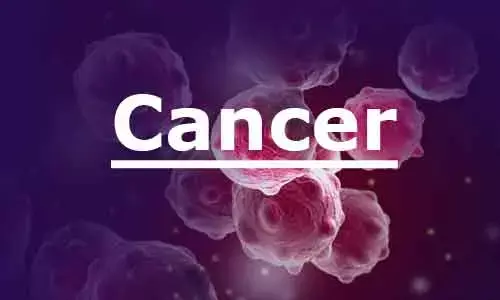- Home
- Medical news & Guidelines
- Anesthesiology
- Cardiology and CTVS
- Critical Care
- Dentistry
- Dermatology
- Diabetes and Endocrinology
- ENT
- Gastroenterology
- Medicine
- Nephrology
- Neurology
- Obstretics-Gynaecology
- Oncology
- Ophthalmology
- Orthopaedics
- Pediatrics-Neonatology
- Psychiatry
- Pulmonology
- Radiology
- Surgery
- Urology
- Laboratory Medicine
- Diet
- Nursing
- Paramedical
- Physiotherapy
- Health news
- Fact Check
- Bone Health Fact Check
- Brain Health Fact Check
- Cancer Related Fact Check
- Child Care Fact Check
- Dental and oral health fact check
- Diabetes and metabolic health fact check
- Diet and Nutrition Fact Check
- Eye and ENT Care Fact Check
- Fitness fact check
- Gut health fact check
- Heart health fact check
- Kidney health fact check
- Medical education fact check
- Men's health fact check
- Respiratory fact check
- Skin and hair care fact check
- Vaccine and Immunization fact check
- Women's health fact check
- AYUSH
- State News
- Andaman and Nicobar Islands
- Andhra Pradesh
- Arunachal Pradesh
- Assam
- Bihar
- Chandigarh
- Chattisgarh
- Dadra and Nagar Haveli
- Daman and Diu
- Delhi
- Goa
- Gujarat
- Haryana
- Himachal Pradesh
- Jammu & Kashmir
- Jharkhand
- Karnataka
- Kerala
- Ladakh
- Lakshadweep
- Madhya Pradesh
- Maharashtra
- Manipur
- Meghalaya
- Mizoram
- Nagaland
- Odisha
- Puducherry
- Punjab
- Rajasthan
- Sikkim
- Tamil Nadu
- Telangana
- Tripura
- Uttar Pradesh
- Uttrakhand
- West Bengal
- Medical Education
- Industry
Chocolate candy consumption increases risk of colorectal cancer, finds study

USA: A recent study revealed that consumption of chocolate candy at least 1.5 times/wk by postmenopausal women is associated with a modest 18% higher risk of colorectal cancer. But there was no significant association between chocolate candy intake and invasive total or breast cancer. The study is published in the Journal of the Academy of Nutrition and Dietetics.
Animal and laboratory studies have shown chocolate consumption to be associated with a lower risk of cancer. However, there has been inconsistent evidence from epidemiological studies. Therefore, James A. Greenberg, University of New York, Brooklyn, NY, and colleagues assessed the association of chocolate candy consumption with the incident, invasive total, colorectal, breast, and lung cancers in a large cohort of postmenopausal American women.
For the purpose, the researchers undertook a prospective study with a mean 14.8-year follow-up. Postmenopausal women at 40 clinical centers nationwide, between 1993 and 1998, were registered in the Women's Health Initiative Study. A food frequency questionnaire was used to assess chocolate candy intake.
114,281 women (from Women's Health Initiative Study) with plausible food-frequency or biometric data and no missing data on chocolate candy exposure were selected for the study.
The primary outcome was cancer risk in quartiles of chocolate candy consumption with the first quartile as referent.
Key findings of the study include:
- There were 16,164 documented incident invasive cancers, representing an incidence rate of 17.0 per 100 participants and 12.3 per 1000 person-years during follow-up among participants without any preexisting cancers or missing outcome data.
- There were no statistically significant associations for total invasive cancer ( P-linear = .47, P-curvature = .14), or invasive breast cancer ( P-linear = .77, P-curvature = .26).
- For colorectal cancer P-linear was .02, P-curvature was .03, and compared with women eating a 1 oz (28.4 g) chocolate candy serving <1 time per month, the hazard ratio for ≥1.5 times/wk was 1.18. This result may be attributable to the excess adiposity associated with frequent chocolate candy consumption.
"In the Women's Health Initiative, there was no significant association between the consumption of chocolate candy and invasive total or breast cancer. There was a modest 18% higher risk of invasive colorectal cancer for women who had chocolate candy at least 1.5 times/wk. These results require confirmation," concluded the authors.
The study, "Chocolate Candy and Incident Invasive Cancer Risk in the Women's Health Initiative: An Observational Prospective Analysis," is published in the Journal of the Academy of Nutrition and Dietetics.
Dr Kamal Kant Kohli-MBBS, DTCD- a chest specialist with more than 30 years of practice and a flair for writing clinical articles, Dr Kamal Kant Kohli joined Medical Dialogues as a Chief Editor of Medical News. Besides writing articles, as an editor, he proofreads and verifies all the medical content published on Medical Dialogues including those coming from journals, studies,medical conferences,guidelines etc. Email: drkohli@medicaldialogues.in. Contact no. 011-43720751


